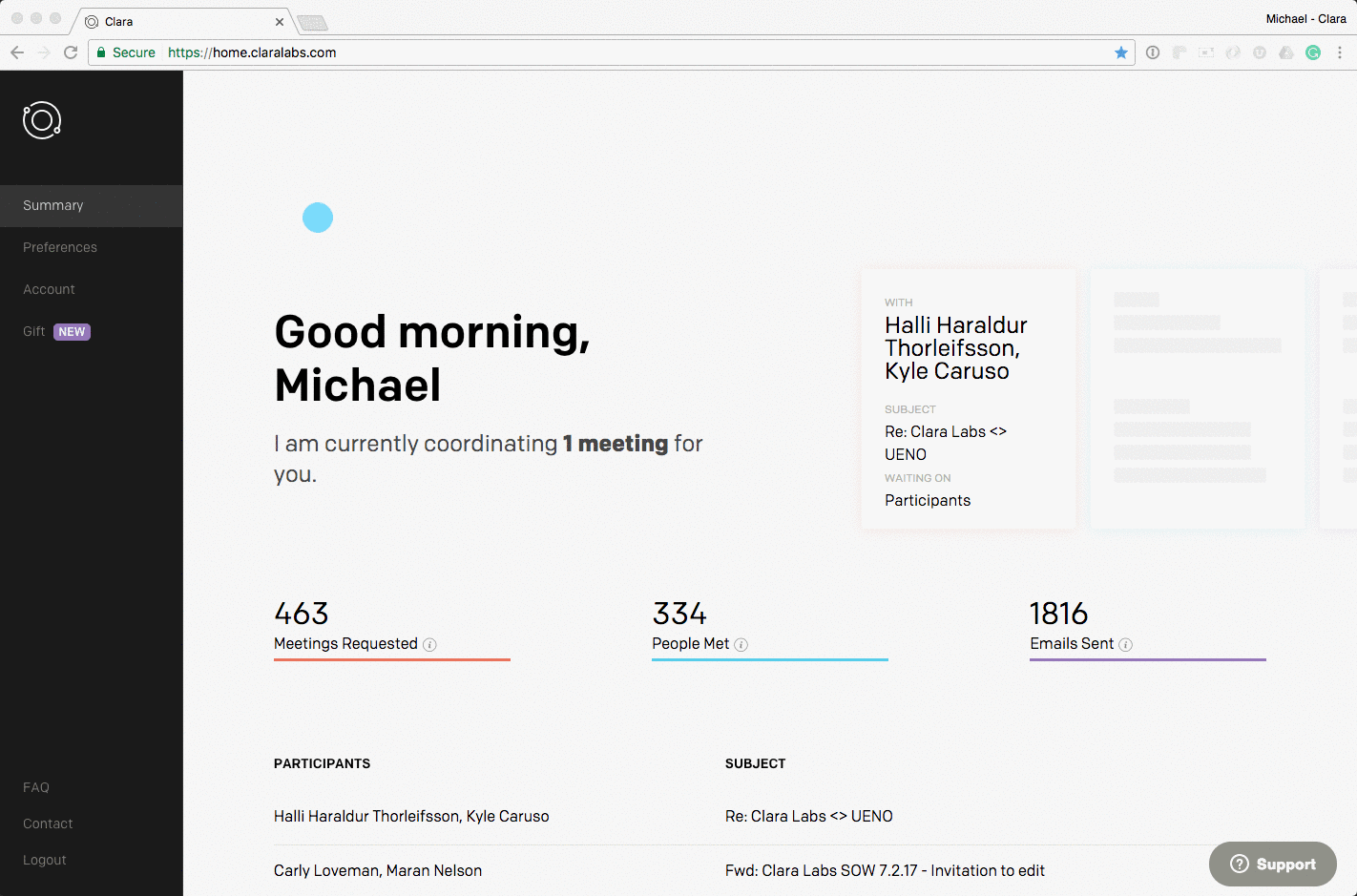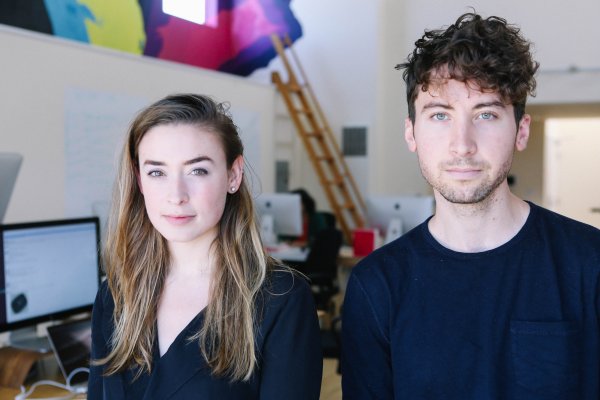Clara Labs, creator of the Clara AI assistant, is announcing a $7 million Series A this morning led by Basis Set Ventures. Slack Fund also joined in the round, alongside existing investors Sequoia and First Round. The startup will be looking to further differentiate within the crowded field of email-centric personal assistants by building in features and integrations to address the needs of enterprise teams.
Founded in 2014, Clara Labs has spent much of the last three years trying to fix email. When CC-ed on emails, the Clara assistant can automatically schedule meetings — reasoning around preferences like location and time.
If this sounds familiar, it’s because you’ve probably come across x.ai or Fin. But while all three startups look similar on paper, each has its own distinct ideology. Where Clara is running toward the needs of teams, Fin embraces the personal pains of travel planning and shopping. Meanwhile, x.ai opts for maximum automation and lower pricing.
That last point around automation needs some extra context. Clara Labs prides itself in its implementation of a learning strategy called human-in-the-loop. For machines to analyze emails, they have to make a lot of decisions — is that date when you want to grab coffee, or is it the start of your vacation when you’ll be unable to meet?
In the open world of natural language, incremental machine learning advances only get you so far. So instead, companies like Clara convert uncertainty into simple questions that can be sent to humans on demand (think proprietary version of Amazon Mechanical Turk). The approach has become a tech trope with the rise of all things AI, but Maran Nelson, CEO of Clara Labs, is adamant that there’s still a meaningful way to implement agile AI.
The trick is ensuring that a feedback mechanism exists for these questions to serve as training materials for uncertain machine learning models. Three years later, Clara Labs is confident that its approach is working.
Bankrolling the human in human-in-the-loop does cost everyone more, but people are willing to pay for performance. After all, even a nosebleed-inducing $399 per month top-tier plan costs a fraction of a real human assistant.

Anyone who has ever experimented with adding new email tools into old workflows understands that Gmail and Outlook have tapped into the dark masochistic part of our brain that remains addicted to inefficiency. It’s tough to switch and the default of trying tools like Clara is often a slow return to the broken way of doing things. Nelson says she’s keeping a keen eye on user engagement and numbers are healthy for now — there’s undoubtedly a connection between accuracy and engagement.
As Clara positions its services around the enterprise, it will need to take into account professional sales and recruiting workflows. Integrations with core systems like Slack, CRMs and job applicant tracking systems will help Clara keep engagement numbers high while feeding machine learning models new edge cases to improve the quality of the entire product.
“Scheduling is different if you’re a sales person and your sales team is measured by the total number of meetings scheduled,” Nelson told me in an interview.
Nelson is planning to make new hires in marketing and sales to push the Clara team beyond its current R&D comfort zone. Meanwhile the technical team will continue to add new features and integrations, like conference room booking, that increase the value-add of the Clara assistant.
Xuezhao Lan of Basis Set Ventures will be joining the Clara Labs board of directors as the company moves into its next phase of growth. Lan will bring both knowledge of machine learning and strategy to the board. Today’s Clara deal is one of the first public deals to involve the recently formed $136 million AI-focused Basis Set fund.
